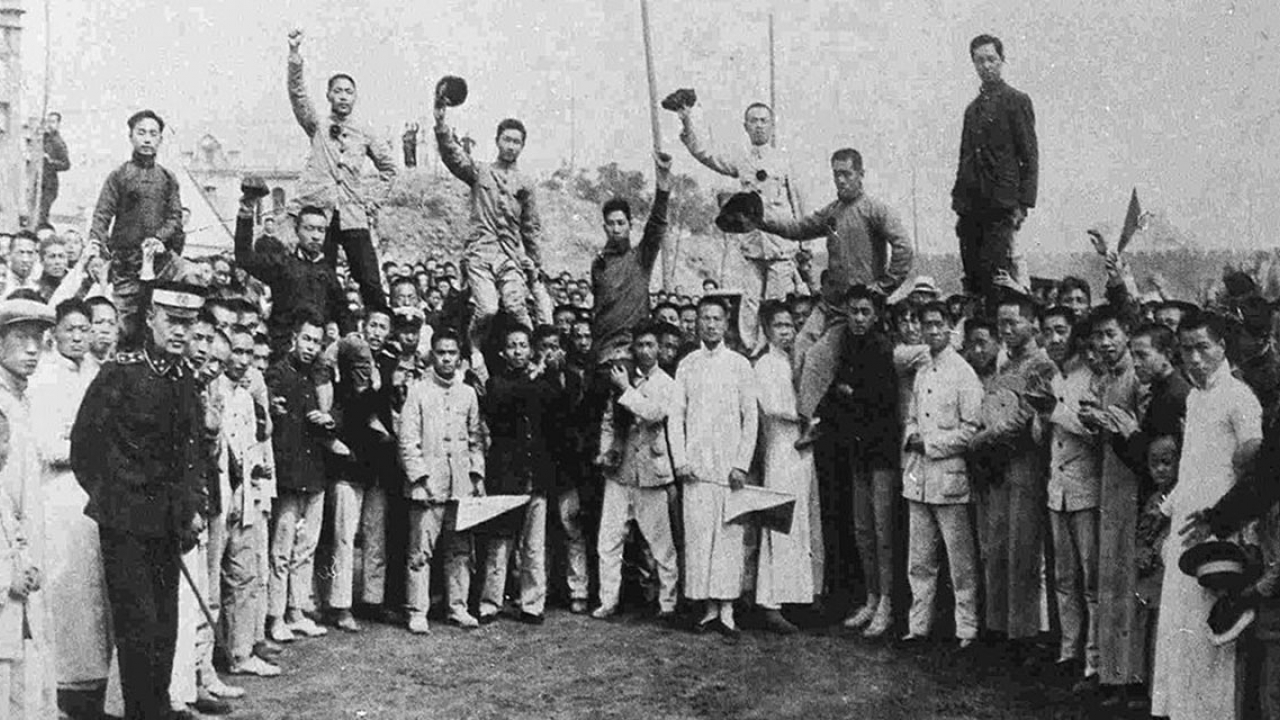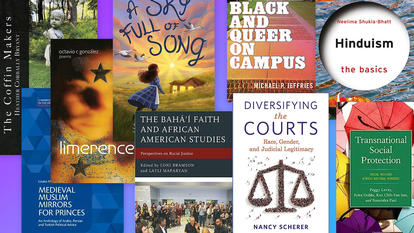Wellesley Professor Marks 100th Anniversary of China’s May Fourth Movement

One hundred years after China’s May Fourth Movement—a student-led protest to promote democracy, enlightenment, modernity, and science—scholars from around the world convened at May Fourth @ 100: China and the World, a symposium held at Harvard University on April 12 and 13, to reflect on its impact and legacy. Wellesley College associate professor of Chinese Mingwei Song, a co-organizer of the event, talks about how the movement is remembered and portrayed today in China, and what political action looks like now for Chinese students.
Q: What is the May Fourth Movement?
Mingwei Song: The May Fourth Movement was the first major student protest that had a nationwide impact in China. It took place in Tiananmen Square on May 4, 1919, and it was the culmination of a decade-long intellectual effort to reform China, particularly the minds of Chinese people. The students protested against the then-Warlord government’s foreign policy, government corruption, and above all its dictatorship. They openly called for total Westernization, emphasized the role of modern literature in shaping a new type of national culture, and promoted the belief that China should become a democracy.
Q: What topics did you and your colleagues discuss at the conference at Harvard?
Song: Our focus at the conference was to reflect on the questions that were first raised by the May Fourth generation 100 years ago, including questions on democracy, liberalism, science, tradition, vernacular literature, literary modernity, gender, and sentimentality. On the one hand, and it’s not a big surprise to us, the situation in China has changed so much that May Fourth appears to be outdated in many ways. It’s viewed as a necessary but failed enlightenment movement by many contemporary scholars.
However, we are still living in a similar historical situation that requires Chinese citizens to make tremendous efforts to keep democracy alive in an even more complicated authoritarian society. This means that the goals of May Fourth Movement were never fully realized. May Fourth may have failed in this capacity, but its ideals are not dead. It is still relevant to our own reflections on the accelerating changes of the contemporary world, which have not completely been built upon the rules of democracy and liberty.
Q: How has political participation for youth in China changed since the May Fourth Movement?
Song: The May Fourth Movement has inspired many later youth movements, from the pro-Leftism December 9 Movement in 1935 to the pro-democracy student protest in Tiananmen Square that ended tragically in 1989, when the government used violence to end the protest. For a very long time, May Fourth also connoted rebellion, resistance, and reflection in China, and it inspired Chinese students to do the same when facing pervasive injustice or government corruption. However, this dynamic image of May Fourth has become too dangerous, too uncontrollable, and too restless to the current regime.
Q: It is reported in a May, 3, 2019, New York Times article that Xi Jinping, China’s current leader, urged young citizens to “obey and follow the party.” How can this be reconciled in China with some of the key questions you state—modernity, enlightenment, revolution, democracy, science, and liberty?
Song: Xi Jinping’s exhortation to China’s young people is not at all in the original spirit of May Fourth that emphasizes individual freedom. However, Xi's new policy may function to convey a nationalistic appeal to youths, though it is still a difficult question to ask how much this policy truly appeals to contemporary students, for whom the pursuit of democracy, the embrace of enlightenment, and the impulse for revolution have never died.
It may take one or two more generations for Chinese youths to reorient the national culture toward a new May Fourth, though it’s not certain whether a new May Fourth Movement may arrive in the same style as it did 100 years ago. To use some Chinese netizens’ words, for Internet users, everywhere is now Tiananmen Square.
Q: In the United States, many mark “May the Fourth” as a pun-based a Star Wars cultural phenomenon—“May the Fourth Be With You.” As an expert in the field of Chinese science fiction, do you find that Star Wars, Chinese science fiction, and the protest against imperial power seen in the May Fourth Movement are connected in any way?
Song: Science fiction itself was not popular during the May Fourth period. A certain realism that served to fuel the struggle for democracy prevailed in 20th-century China. It was not until very recently—with the rise of the post-1989 intellectual culture—that a new wave of Chinese science fiction began to flourish. This new science fiction claimed to inherit the May Fourth spirit, in terms of both democracy and science, and showed the Chinese population that alterity outside the established order is still possible, that a pursuit of a different approach to modernity is possible, and that the conception of a different idea of humanity is possible. To revive the spirit of May Fourth, one may return to the “future,” where idealism is not corrupted by the political power abuse.
I like the Star Wars version of saying “May the Fourth Be With You.” China’s May Fourth needs “the force” from Star Wars. After all, the battle is waged between the freedom fighters and the guards of the Imperial Order. This may potentially explain why Star Wars has been so popular with Chinese audiences; meanwhile, it shows that the Chinese are also updating their learning from the West. From popular culture and science fiction, they also learn: May the force be with you! Or, more importantly, that there is a world that can be different, better administered, and more humane.
Photo: Students from Beijing Normal University return to the university on May 7, 1919, after being arrested for their involvement in the May Fourth Movement.



